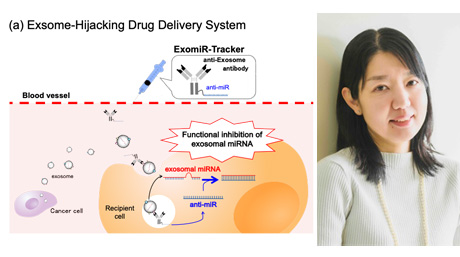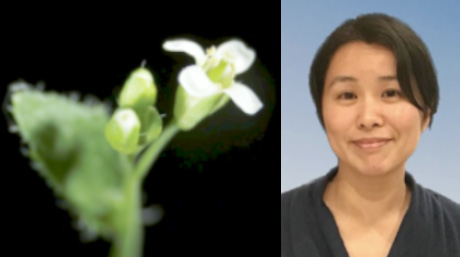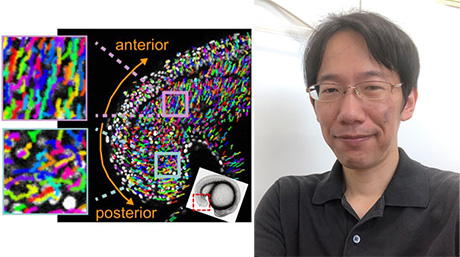Life Science and Technology News
【Labs spotlight】Yasui Laboratory
The Department has a variety of laboratories for Life Science and Technology, in which cutting-edge innovative research is being undertaken not only in basic science and engineering but also in the areas of medicine, pharmacy, agriculture, and multidisciplinary sciences.
This "Spotlight" series features a laboratory from the Department and introduces you to the laboratory's research projects and outcomes. This time we focus on Yasui Laboratory.
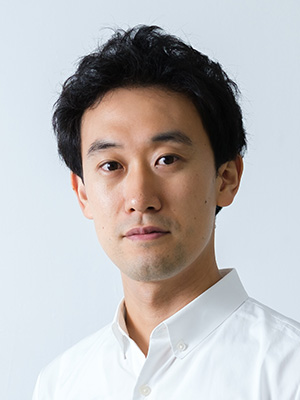
Areas of Supervision
Primary/Science and Technology for health Care and Medicine
Secondary/Life Science and Technology, Human Centered Science and Biomedical Engineering
Professor Takao Yasui![]()
| Office | Room 521, B2 building, Suzukakedai campus |
|---|---|
| Degree | PhD 2011, Nagoya University |
| Areas of Research | Analytical chemistry, Nanomaterial, Micro-/Nano-fabrication |
| Keywords | Nanodevices, Life analytical chemistry, Liquid biopsy |
| WEBsite URL | Yasui Lab. |
Research interest
In order to address the academic and social needs related to biomolecular analysis, we are actively developing new methods for the separation and extraction of biomolecules. Our recent focus has been on extracellular vesicles, which contain nucleic acids such as microRNAs known to regulate gene expression and play crucial roles in various biological processes. Traditional approaches for separating extracellular vesicles have primarily relied on methods such as ultracentrifugation for density separation, immunoreaction for immunoseparation, and size exclusion chromatography for size-based separation. However, the limited capture efficiency of these conventional techniques has significantly hindered our understanding of the formation, functional expression, degradation, and excretion processes associated with extracellular vesicles. The reduced recovery rates observed with conventional techniques can be attributed to weak interaction forces, and attempts to analyze extracellular vesicles using refurbished conventional methods have failed to capture the true essence of these vesicles. As a result, our laboratory has proposed a novel recovery method based on enhanced interaction forces, which promises improved recovery rates. We are actively developing technology that allows for the comprehensive capture of extracellular vesicles using nanomaterials.
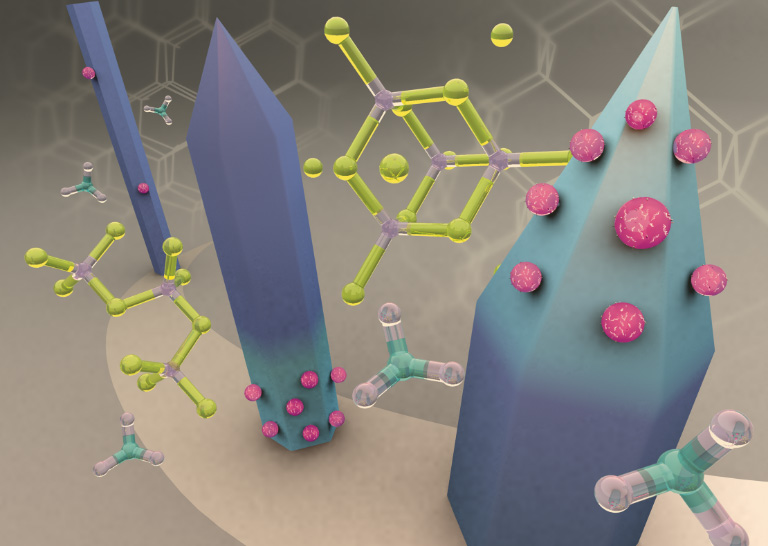
We are developing devices that incorporate nanomaterials fabricated within microfluidic channels to advance biomolecular analysis techniques for liquid biopsy applications. Liquid biopsy represents a promising approach for the detection and monitoring of tumors and diseases by simply collecting and analyzing bodily fluids such as blood, urine, and saliva. In contrast to traditional tissue biopsies, liquid biopsy is highly anticipated for its simplicity, minimally invasive nature, and the ability to perform repeated and frequent tests essential for long-term monitoring. Our laboratory is focused on the fabrication of nanodevices that integrate nanomaterials within microfluidic channels, allowing for straightforward manipulation. These nanodevices act as a critical bridge toward clinical applications. For instance, one of our nanodevices can capture more than 99% of extracellular vesicles and has consistently outperformed conventional methods. It has enabled the discovery of over 1300 distinct microRNA species in just 1 mL of urine. At the time of its discovery, there were more than 2000 confirmed species of human microRNAs, and since microRNA function plays a significant role in maintaining human health, the discovery of approximately 300 species using the ultracentrifugation method in 20 mL of urine was considered a reasonable number. Our laboratory’s achievement of identifying more than 1300 microRNA species is a groundbreaking development. In recent years, the use of nanodevices to comprehensively capture extracellular vesicles in urine, combined with machine learning-based analysis of microRNA profiles, has yielded outstanding predictive results in terms of cancer diagnosis rates, sensitivity, and specificity. This represents a revolutionary advancement in nanodevice technology that holds the potential to contribute to a healthier society through urinary diagnostics. This achievement surpasses the previously considered reasonable number of 300 types and has become a foundational technology poised to transform various industries.
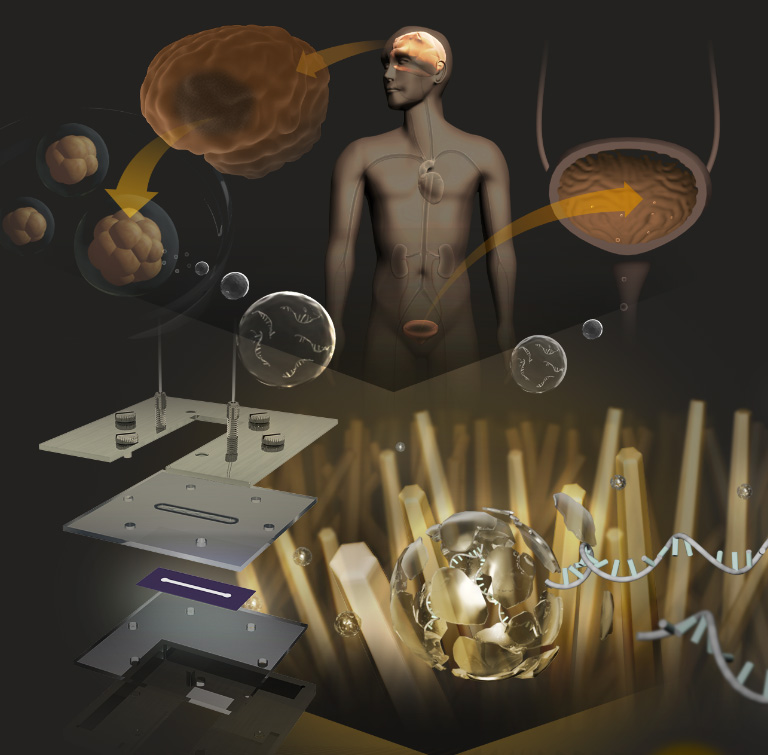
Craif Corporation, established in 2018, has been actively engaged in developing cutting-edge technologies for the early diagnosis of diseases through collaborations with various hospitals. The company has received prestigious recognition for its innovative work, including the NEDO Chairman’s Award at the University Venture Award in 2019, the “Generation Award” in the field category from the Ministry of Internal Affairs and Communications’ “異能(INO)vation” in 2020, and an online feature article titled “Advanced Extraction of Urinary MicroRNA for Early Cancer Detection” in Nature in 2021. Starting on February 1, 2022, Craif Corporation launched its groundbreaking “miSignal™” service for the early detection of cancer through urinary microRNA analysis. This service has been successfully integrated into medical institutions across all 47 prefectures of Japan, contributing significantly to the advancement of early cancer detection and improving healthcare outcomes.
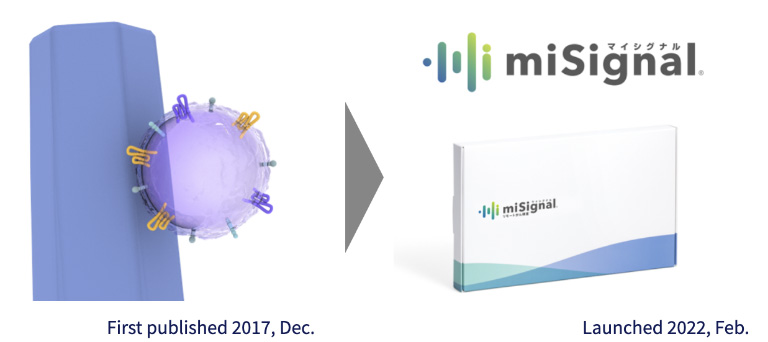
Selected publications
Contact
Professor Takao Yasui
Room 521, B2 building, Suzukakedai campus
E-mail : yasuit@bio.titech.ac.jp
Tel / Fax : +8145-924-5520
*Find more about the lab and the latest activities at the lab site![]() .
.
*May 1, 2025:Some of the content has been updated with the latest information.


